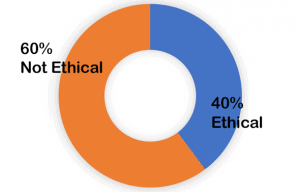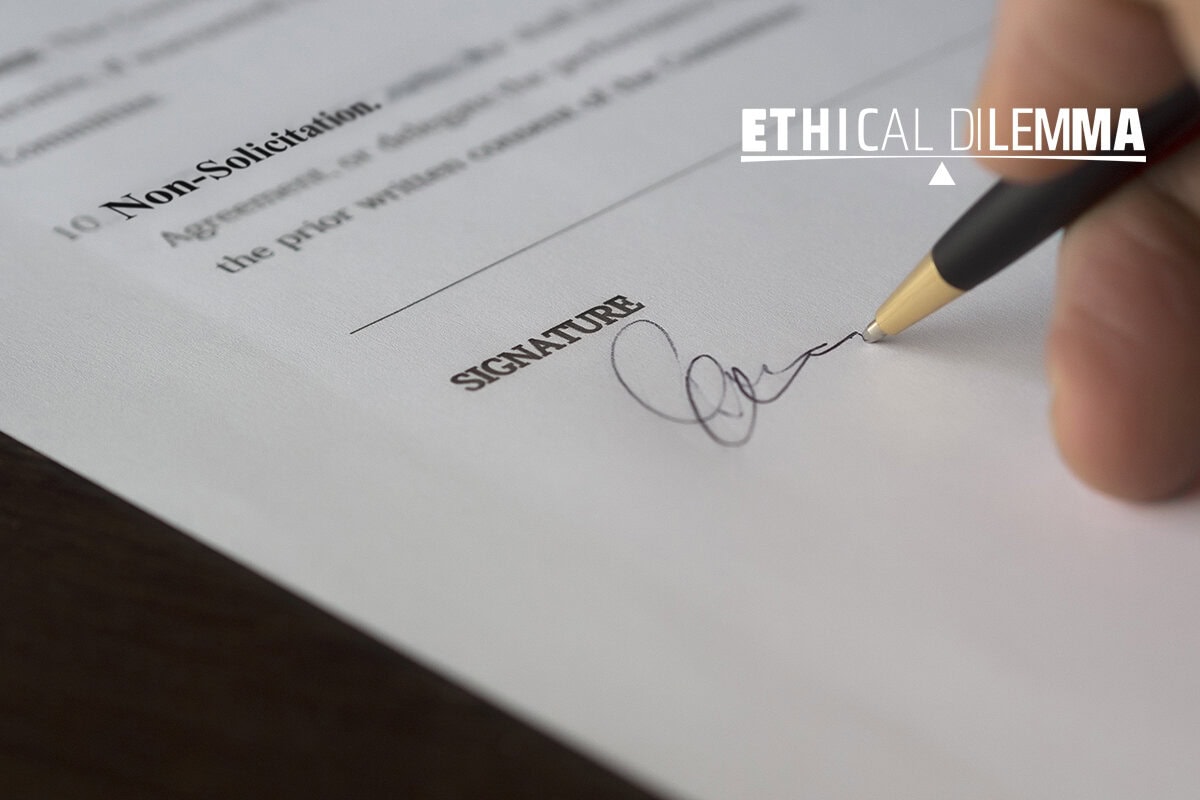This is the April 2020 edition of our monthly series of Ethics case studies titled What Do You Think? This series is comprised of case studies from NSPE archives, involving both real and hypothetical matters submitted by engineers, public officials and members of the public.
Your peers and the NSPE Board of Ethical Review have reviewed the facts of the case as shown below. And, here are the results.
Your opinion has been registered for the April 2020 edition of our monthly series of Ethics case studies titled What Do You Think?
Your vote is recorded as:

Want to know how your peers voted? We’ll send you an email with the poll results on April 28.
Your opinion has been registered for the April 2020 edition of our monthly series of Ethics case studies titled What Do You Think?
Your vote is recorded as:

Want to know how your peers voted? We’ll send you an email with the poll results on April 28.
A Review of the Facts
An owner is in the process of selecting an engineering firm to perform design services in connection with the construction of a manufacturing facility. The owner employs a qualifications-based selection procedure in which firms submit their information and the best-qualified firm is selected, subject to fee negotiations. The owner selects Engineer Mark to perform design services, and then contracts Engineer Greg to assist with negotiations. Engineer Greg is the principal in one of the firms that was not selected, and he agrees to assist the owner.
Was it ethical for Greg to agree to assist the owner in its negotiations with Mark?
Here is the result of our survey of your peers:

Applicable NSPE Code References:
Code II.4.a: Engineers shall disclose all known or potential conflicts of interest that could influence or appear to influence their judgment or the quality of their services.
Code III.1.e: Engineers shall not promote their own interest at the expense of the dignity and integrity of the profession.
Code Code III.6: Engineers shall not attempt to obtain employment or advancement or professional engagements by untruthfully criticizing other engineers, or by other improper or questionable methods.
Code III.7.a: Engineers in private practice shall not review the work of another engineer for the same client, except with the knowledge of such engineer, or unless the connection of such engineer with the work has been terminated.
Discussion
The facts in this case are unique and such a case has never been considered before by the Board. The Preamble requires that services by engineers be with “…honesty, impartiality, fairness and equity…” We find it difficult to believe that Greg can approach the negotiations complying with this criteria after losing the assignment to Mark. The facts do not indicate that Greg has disqualified himself from future considerations should the owner fail to negotiate a satisfactory fee arrangement. It is conceivable, therefore, that Greg might have another opportunity for this assignment; hence, possibly affecting his impartiality. Under this circumstance there can be a perception that Greg could be in violation of Code III.7.
While the owner and Mark are aware of Greg’s prior involvement in the selection process, Greg apparently has not withdrawn from future consideration for this assignment and other future assignments for this owner. Code II.4.a calls on the engineer to “disclose all known or potential conflicts of interest that could influence or appear to influence their judgment or the quality of their services.” It is not enough for Greg to assume that all parties are aware of his potential conflict of interest. The Code clearly requires the engineer to call this to the attention of all parties.
Code III.1.e. requires the engineer to “avoid any act tending to promote their own inte











I agree with the dissenting opinion believing that Engineer Greg would act ethically. I view this as an overarching individual’s perception of human nature. In other words, I believe the dissenting opinion’s author believes he and engineers in general would act ethical, not attempt to undermine Engineer Mark, and serve their client ethically and fairly. However, I believe that the authors of the board’s opinion may reflect on how they believe engineers would act in general (maybe a negative perception of human nature to take advantage of a situation) and what thoughts would cross their mind if they were in the position of Engineer Greg.
I was involved in a case JUST LIKE THIS ONE. As it was, the issue was for a NASA contract which specifically exempts itself from any State Engineering requirements. Essentially, I left a mega company for a smaller company because I had 18 years of experience qualifying equipment for Space Shuttles and Space Station. The small company had mega companies WHO HAD BEEN OUTBID for $100 million in contracts. The mega companies were tasked to provide peer reviews – which they did with a vengeance. The net result was the bankrupting of the smaller company!!!!! DO NOT TELL ME LOSERS CAN BE FAIR REVIEWERS!!!
I agree completely with Mr. Fuller. In my opinion, none of the code references is applicable in this case. Engineer Greg has no conflict of interest since he can´t be benefited by the negotiation fo the fee. In the worst case, if there is no agreement, he has set reasons for a fee that are difficult to accept for other engineer that may work against his own interest if he is selected after Engineer Mark withdraw.
Engineer Greg is hired to negotiate the engineering fee; he will not review the work.
Engineer Greg does not need to criticize Engineer Mark and will not have facts other than those related with the fee negotiation. Assuming Engineer Greg will act by default against Engineer Mark is going against his rights. Every body is innocent until demonstrated otherwise.
Finally, Engineer Greg is not promoting himself or his interest at the expense of the dignity or integrity of the profession. It is the other way around, he will make sure that Engineer Mark does not overcharge the owner.
Fuller’s opinion is correct. The appearance of potential bias is not the same as the application of bias.
I disagree with Fuller’s opinion. The Owner advertised a qualifications based selection process which implies a level of competence on his part in being able to negotiate an appropriate fee. Then, after selecting a firm, decides he is not capable, and needs assistance. In doing so he is inviting an unethical situation in that there is a perception of potential bias that is contrary to the necessary public opinion of the integrity of the engineering profession. Greg would have been wise not to accept the assignment.
I would have preferred that the Owner selected Greg first and used his knowledge to frame the selection criteria and assist in fee negotiations. Greg would have been presented to the short listed firms as part of the selection/fee negotiation process keeping the whole selection process above board. Clear limits of responsibility would be drawn.